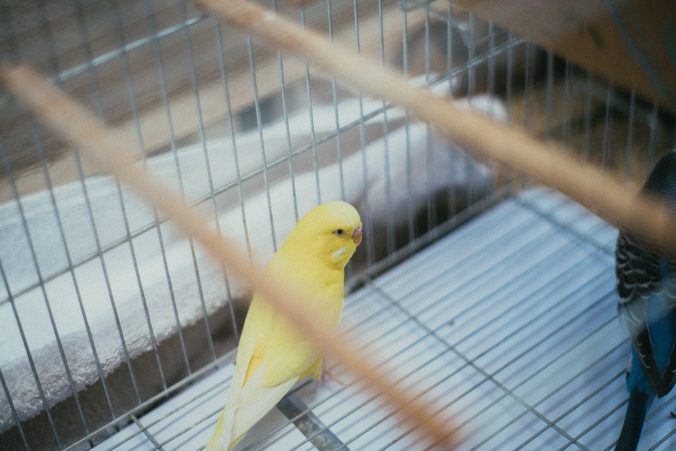By Rhonda Workman, SJT Anti-Racism Leader
In her book, White Fragility, Robin DiAngelo references a metaphor that Marilyn Frye, a scholar, uses to explain how White people look past the systemic web that holds Black people in their place. Marilyn Frye states that if you stand too close to a bird cage, you will see the bird but not the bars that are keeping it confined. If you turn your head slightly, you might see a bar and wonder why the bird doesn’t just fly away. If you draw back a little further, more bars will come into view and since the bird is still there you may come to the conclusion that the bird remains because it is content. It is only when one stands further back that all of the bars come into view revealing the web that holds the bird in place.
Three years ago this month, nine minutes of suffocating force caused our nation to draw back and begin again the process of examining the plight of African Americans. With the murder of George Floyd, a time of enlightening occurred as people began to read, listen to podcasts, and watch movies and documentaries about racism. And as they read and explored, some were beginning to see for the first time the systemic web that holds Blacks down. People around the country, Blacks and Whites, alike began to protest the injustices perpetuated against African Americans.
Since the protests of 2020, there have been some hopeful efforts made to effect change in our country. As mentioned in an earlier article, there are some hopeful criminal justice reforms occurring. There have also been some truth, reconciliation, and reparation movements across the country. Evanston, IL, San Francisco, St Paul/Minneapolis, and most recently Detroit, have done work towards acknowledging the truth of how racism has affected the Blacks in those cities and are seeking ways to offer reparations.
And yet, despite these positive actions, a recent PEW survey published some discouraging results in November of 2022. Four in ten U.S. adults say the legacy of slavery has not much or not at all affected the position for Black Americans in the country today. 77% of Black Americans versus 18% of White Americans support any kind of reparations. Three fourths of the U.S. adults who support reparations believe it likely will not happen in their life time. The PEW Report, in light of the plethora of information that was studied in the last three years, seems to indicate that there has been little impact on the White conscience.
The fear of the Black communities is that these tragedies will once again fall away from the White consciousness. If that happens, it will be another indication of White privilege. Whites have the luxury of forgetting and procrastinating in making reforms because we do not experience systemic barriers as Blacks do. There is no urgency for Whites.
In her book, White Fragility, Robin DiAngelo uses the example of women seeking the right to vote. They were unable to achieve their goals on their own because only people who could vote could give them that right. They were at the mercy of the men, who held all the power. Unless they chose to share their power, women would be voiceless.
There are many changes that need to be made, wrongs that need to be addressed, but it is the Whites who wield the power (DiAngelo, pg. 31). Until Whites search their consciences and through humility seek to understand the barriers that Blacks face every day and seek to understand how our culturalization contributes to those barriers, there will be minimal changes to our society and the systemic web that suppresses African Americans (and other persons of color) will stay in place.
Isaiah 58: 6, 9b-11 reads:
“Is not this the kind of fasting I have chosen: to loose the chains of injustice and untied the cords of the yoke, to set the oppressed free and break every yoke? If you do away with the yoke of oppression, with the pointing finger and malicious talk, and if you spend yourselves in behalf of the hungry and satisfy the needs of the oppressed, then your light will rise in the darkness and your night will become like the noonday. The Lord will guide you always; he will satisfy your needs in a sun-scorched land and will strengthen your frame. You will be like a well-watered garden, like a spring whose waters never fail.”
Interesting reading:
https://naacp.org/resources/reparations
https://amp.cnn.com/cnn/2022/07/13/us/reparations-state-local-commission-reaj/index.html
https://www.barna.com/research/racial-reconciliation/
https://clintonwhitehouse3.archives.gov/initiatives/OneAmerica/what.html
https://diversity.berkeley.edu/impact-slavery-today




Recent Comments